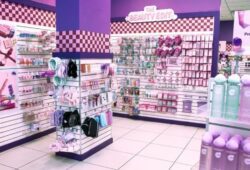In order to understand the value of the consumer experience let’s take a look into studies runned by NTT. The “2021 Global Customer Experience Benchmarking Report” reports a 48.5 per cent of organizations worldwide that perceive customer experience (CX) as a partially competitive differentiator. The 44.5 per cent thinks it’s a primary competitive differentiator.
To acoount the value of the last WPP’s study, Mark Read, CEO of WPP, explained: “We know that brands who invest come out stronger in times of economic uncertainty. As people look to prioritise their expenditure and change their habits, businesses need to rethink any previous assumptions about Minority Ethnic spending. The consumer experience – good or bad – directly shapes and influences people’s daily lives, meaning business leaders play a pivotal role in helping to build a more equal and thriving society.”
Karen Blackett OBE, President of WPP in the UK, said: “Missed or seemingly small consumer opportunities all add up. Engaging just 1% of Minority Ethnic groups now will have an immediate effect for brands which multiplies over time to bring medium and long-term commercial growth. By taking time to understand the varied and nuanced consumer”.
This study about ethnicity, consumer experience and business growth opportunities show the ways in which businesses can address what matters most to these consumer groups to both unlock commercial opportunities and create positive societal impact.
To help brand know about consumer of Minority Ethnic groups the study reveals meaningful insights like the amount of people from these groups will double to almost a third of the United Kingdom population by 2061, wich means these people will have an annual disposable income 575 billion pounds.
Actually, the lack of data about the Minority Ethnic groups leads to unequal consumer experiences so, the meaning of enterprises taking actions to know better how to approach consumers in order to avoid miss out on a cumulative disposable income of up to £727 billion by the end of 2023, £3.06 trillion by 2031 and £16.7 trillion by 2061, because of the lack of ways to connect meaningfully with these consumers.
Facts and keys of “The Consumer Equality Equation”
-
82 per cent of all respondents consider brands responsible of Britain’s culture.
-
80 per cent of respondents think brands have to reflect the modern Britain to the world.
-
70 per cent of all respondents believe that brands affect their wellbeing with actions, products and services.
-
83 per cent of all respondents believe brands must understand more and more different ethnic groups.
-
Out-of-Home is a trusted broadcast medium for Minority Ethnic groups because they think its community-oriented and based nature.
The way brands involve in communities and in their diversity is the ways these companies can benefit from the shopping power these people have.









